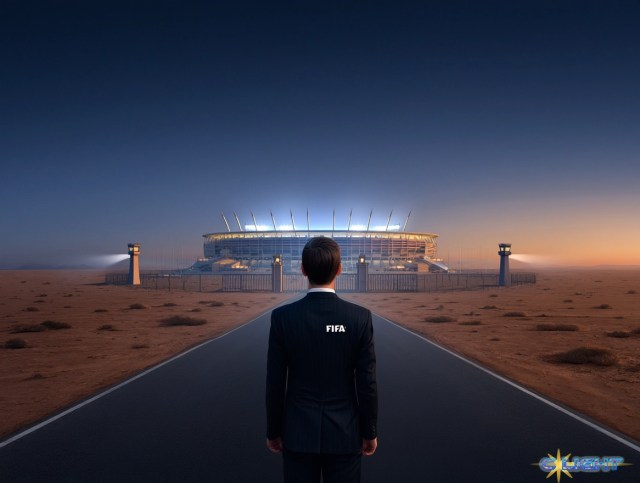4 minutes read time
In the gilded boardrooms of international soccer, two competing visions for the sport’s future in America are on a collision course. The first is a glittering dream of commercial expansion, a vision so powerful that Spain’s La Liga is actively trying to move a regular-season match between Barcelona and Villarreal out of Spain and into Miami’s Hard Rock Stadium. The second is a grim political nightmare, a scenario being painted by a massive coalition of 90 human rights groups who are warning that the host nation’s hardline immigration policies are a direct threat to the 2026 World Cup. At the center of this collision is FIFA, the global governing body of soccer, now caught in a vise between the immense lure of American profit and the undeniable reality of American politics.
Part I: The Lure of the American Market
The push to commercialize European soccer in the U.S. is not a new idea, but it has reached a new level of intensity. The plan to stage a La Liga match in Miami is the latest and most audacious attempt. For its proponents, like the president of the Villarreal club, the motive is simple and unapologetic: “It would greatly help us expand our brand in a key market like the United States.” This is a purely commercial calculation, an attempt to capture the hearts and wallets of a new American fanbase.
But this push for profit is being met with a furious backlash from the sport’s traditionalists. The legendary club Real Madrid has formally rejected the plan, arguing that it violates the “principle of territorial reciprocity” (the sanctity of home and away games) and risks the “adulteration of the competition.” More powerfully, the continent-wide fan group Football Supporters Europe has warned that these moves “strike at the heart of the relationship between fans and their teams, breaking vital links between clubs and their communities.” Despite this, the momentum appears to be on the side of commerce, with FIFA itself reportedly moving toward ending its own long-standing rules that block such international matches.
Part II: The “Ugly” Reality of American Policy
While FIFA and its partners dream of American expansion, a coalition of over 90 international human rights and civil society groups is forcing a confrontation with the ugly reality on the ground. In a formal warning sent to FIFA, these groups have argued that the Felonious Punk administration’s travel bans, visa restrictions, and general crackdown on immigrants are a direct violation of FIFA’s own stated principles of “access and non-discrimination” and its commitment to “human rights for all.”
The coalition’s warning is a direct challenge to FIFA’s integrity. They argue that proceeding with the World Cup in the United States without demanding changes would turn the world’s most beloved sporting event into a “public relations tool to whitewash… an increasingly authoritarian government.” This is the other side of the American coin: the massive market comes with a massive political and moral cost. The very fans, media, and support staff needed for a successful tournament are the same people who are being targeted by the host nation’s discriminatory policies.

FIFA at a Crossroads
The 2026 World Cup is shaping up to be a defining test for FIFA and the entire world of international sport. The organization is caught between two powerful and irreconcilable demands. Will it pursue the path of maximum profit, siding with the commercial interests of leagues and marketing groups, even if it means alienating its core fanbase and undermining its own traditions? Or will it choose to uphold its stated principles, using its immense leverage to confront the ugly political reality of its host nation?
This is more than just a single event. The visa restrictions that are creating a crisis for FIFA are poised to “bite us in the ass on all manner of international sport.” The 2026 World Cup is not an isolated challenge; it is the first major test of a new and growing conflict between America’s hardline, “America First” policies and the globalized, interconnected world of international culture and competition. The problems facing FIFA today are likely just the beginning.
Discover more from Clight Morning Analysis
Subscribe to get the latest posts sent to your email.










